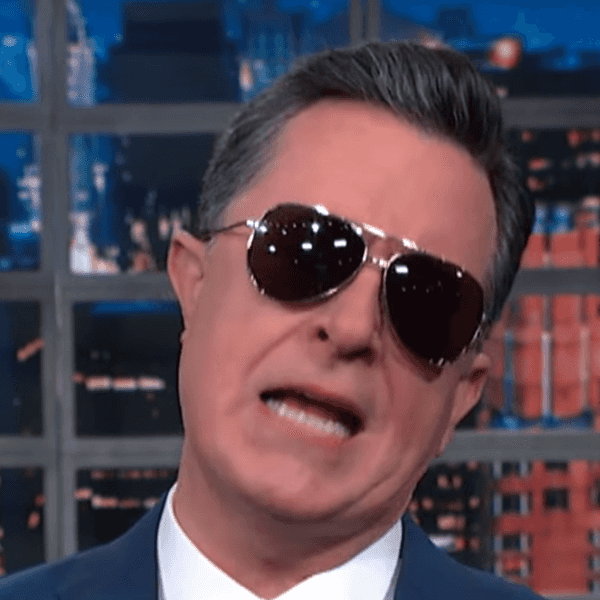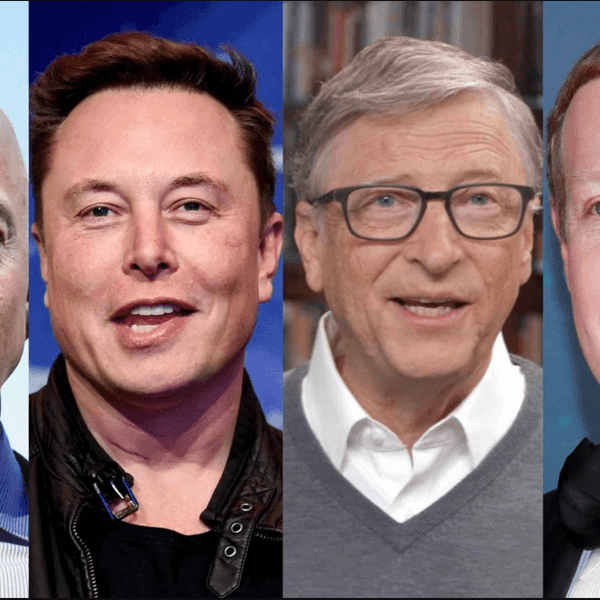Pfizer announced Monday that its vaccine demonstrated more than 90 percent effectiveness and no serious bad reactions in early trial results — an impressive outcome that will pave the way for the company to seek an emergency authorization once it collects more safety data for another week or two. But establishing that the vaccine is safe and effective is just the first step.
The Pfizer vaccine is unusually difficult to ship and store: It is administered in two doses given 21 days apart, has to be stored at temperatures of about minus 100 degrees Fahrenheit and will be delivered in dry ice-packed boxes holding 1,000 to 5,000 doses. These cartons can stay cold enough to keep the doses viable for up to 10 days, according to details provided by the company. The ice can be replenished up to three times. Once opened, the packages can keep the vaccine for five days but can't be opened more than twice a day. The vaccine can also survive in a refrigerator for five days but can't be refrozen if unused.
Health officials haven't figured out how to get the ultra-cold doses to critical populations living far from cities, according to a ProPublica review of distribution plans obtained through open records laws in every state. Needing to use 1,000 doses within a few days may be fine for large hospital systems or mass vaccination centers. But it could rule out sending the vaccine to providers who don't treat that many people, even doctors' offices in cities. It's especially challenging in smaller towns, rural areas and Native communities on reservations that are likely to struggle to administer that many doses quickly or to maintain them at ultracold temperatures.
The government's vaccine program, Operation Warp Speed, has projected optimism about its readiness to distribute the vaccine. On Monday, Gen. Gustave Perna told NPR, “I think we're in a good place," saying that “with the right planning, we can execute it with zero loss of vaccine." But the federal program is only going to be responsible for delivering vaccines to the states, which must then figure out on their own how to get the shots to the people who need them most. The Centers for Disease Control and Prevention asked each state to turn in distribution plans on Nov. 2, imagining a scenario in which a vaccine with Pfizer's specifications came first.
ProPublica obtained full preliminary plans for 47 states (Hawaii, Pennsylvania and Minnesota say they're still working on theirs). Many struggled with how to handle a Pfizer-like vaccine. Washington state's Health Department does not have its own warehouse that can store the Pfizer vaccine at a cold enough temperature. Arizona expects the Pfizer vaccine cannot be handled by the state's rural communities and tribal lands. North Dakota and Oregon aren't sure how to take care of migrant workers. Kansas' plan appears to mistakenly assume shipments will be far smaller than 1,000 doses. Georgia's Public Health Department is relying on local districts and counties to work out their own details.
“Early, when we don't have lots of doses, I frankly do not anticipate that vaccine will be widely available in every rural community," Dr. Amanda Cohn, chief medical officer for the CDC's Vaccine Task Force, said during a call on vaccine implementation planning with rural stakeholders on Nov. 3. “The first couple months will be not ideal, but we really want to listen to our rural partners and understand what we can do to make it better," she added.
The concern is most pronounced in places like Mt. Vernon Countryside Manor, a nursing home in southern Illinois more than 100 miles from the nearest major city, where the staff is working to contain the facility's first COVID-19 outbreak. Glenda Lee Young, a nurse at the home, said four residents and an employee tested positive for COVID-19 in recent weeks. The sick have been isolated from the other 70 elderly residents, and are recovering.
The surrounding county has a fatality rate of 4.5 percent, more than double that of Illinois as a whole, according to data from the Johns Hopkins University COVID-19 dashboard. The staff at Mt. Vernon is eager for a vaccine to help them and their residents. Illinois' distribution plan includes health care workers and people 65 years and older among the first groups to be immunized.
“Our people would not travel," Young said. “If a vaccine becomes available, it would have to come to us."
However, Illinois' plan does not specify how shots will be provided to rural parts of the state that may not have enough people or ultracold storage. The state's Department of Public Health didn't immediately respond to a request for comment.
Young said she was not surprised by the state's silence on rural vaccine access. “We get the shaft on a lot of stuff."
Officials Trying To Hit “A Moving Target"
Health officials stressed that the plans are still evolving as they receive changing information. Even though Pfizer's vaccine has long been seen as the likely front-runner, details from the trial, including the vaccine's efficacy in specific populations like the elderly, have yet to be published. Shipping and storage logistics are also expected to continue to be fine-tuned with each passing week.
“It's a moving target," Dr. Philip Huang, director of the Dallas County Health and Human Services Department, said. “There's new info every day."
The changing details make it harder to plan, and some officials acknowledged they haven't gotten very far.
“There are too many variables still to be worked out at the federal level," a spokeswoman for the Georgia Department of Public Health said by way of declining an interview request for this article. “Much of what happens going forward will depend on the vaccine itself, when we receive it and what the protocols will be for prioritizing distribution among various populations."
The problem with waiting for details on the vaccine to be revealed is that mass immunization is a multilayered process, involving public communication campaigns, ordering of equipment, hiring of staff, training of vaccine providers and the added complexity, in this pandemic, of making sure all vaccine sites are safe and won't contribute to the spread. Operation Warp Speed has said its goal is to begin shipping the day that a vaccine is given the green light by the FDA, so states need to be ready at any moment.
For the initial months after the Food and Drug Administration signs off on a vaccine, the CDC advised state and local health authorities to prioritize health care workers, then move on to other essential workers and at-risk populations such as nursing home residents. Access would expand to the general public as manufacturing ramps up to make more doses available.
But there are a lot of details left to determine within those broad categories. Some health care workers have more exposure than others; North Dakota wants hospitals to document how they decided whom to vaccinate first. Maryland is prioritizing people in jails and prisons (where sharing close quarters has led to severe outbreaks), but states like Idaho and Mississippi have scheduled them for later. Arkansas, which has a large chicken industry, considers meatpacking workers to be essential. Oklahoma is prioritizing its long-term care population. Some states stressed communities of color, which have been disproportionately sickened and killed by the virus. “We are currently in the midst of a social justice movement across the county," Kentucky's plan notes.
Rural Communities Are “The Greatest Challenge"
Across the country, authorities are grappling with how to accommodate the Pfizer vaccine's finicky specifications. So far, state plans show few have come up with clear solutions. Oregon, for instance, said it still needs to “develop [a] plan" for how to handle 1,000-dose orders in “remote Oregon locations, while maintaining the ultracold chain and avoiding wastage."
Perna, the general leading logistics for Operation Warp Speed, told NPR that it's up to states to buy more freezers. That contradicts the CDC's instruction to not invest in more equipment. But many states said they're doing so anyway, or at least looking into it. They're also taking stock of what facilities already exist in their states at hospitals and universities, or where they can get dry ice.
North Dakota, where the virus has killed roughly 1 out of every 1,200 people, is considering whether to break down the 1,000-dose packages and, on its own, distribute smaller quantities to individual hospitals and clinics.
“The greatest challenge will be to moving small amounts of vaccine to widely scattered locations during Phase 1 since only a small percentage of the small population will be eligible for the vaccine," the state's plan said. It describes one health district that has three hospitals, two of which are more than an hour's drive away from the nearest city via a two-lane road, and eight long-term care facilities that are even more remote. “Reaching small populations without redistribution may not [be] possible."
Even in the case where prioritized health care workers were physically capable of driving themselves to the city to get a vaccine, relying on doctors and nurses to get themselves to a vaccine “doesn't compute," said Tim Size, executive director of the Rural Wisconsin Health Cooperative, which represents 43 rural acute hospitals. Wisconsin is battling its worst outbreak of the pandemic, and every hospital is stretched thin on staff, he said. Requiring everyone to take time off, twice, to get the Pfizer vaccine “means two days of lost staff time at a time we're desperately short of staff."
Size urged Pfizer to figure out a way to package its vaccine in smaller shipments so it could be delivered directly to rural hospitals. A spokeswoman for Pfizer declined to comment on whether the company is working on that.
Later vaccines will likely have less onerous storage requirements, and at least one, made by Johnson & Johnson, only requires one dose instead of two, so many states are hoping to have multiple options to work with that may make it easier to reach remote populations.
Some states appeared to be avoiding the issue of Pfizer's packaging for now. The Kansas Department of Health and Environment's plan assumes any approved vaccine will be “available in minimal quantities such as 100 doses per order." Kansas' department did not respond to requests for comment.
“If Pfizer comes out and says they're going to provide doses of 25 instead of 1,000, that's a game changer," said Imelda Garcia, associate commissioner for the Texas Department of State Health Services' Division for Laboratory and Infectious Disease Services. “The manufacturers were imagining mass vaccination efforts and not really thinking about rural areas. We've been pushing pretty hard at the federal level for them to provide smaller packages. We don't know if that will occur or not."
As Texas and other states consider the need to break down the 1,000-dose packages into smaller shipments, that's an additional cost that they'd have to shoulder, since the federal government will only pay to move the vaccines once. Several states identified funding as a major problem.
Virginia's plan included a “preparedness gap analysis" that estimates that it will need $71 million to establish and operate mass vaccination clinics, which would include hiring temporary staff and covering facility rental costs, translation services, signage and other operating costs.
The plan also calls for a further $2.5 million in equipment such as refrigerators and thermometers and $3 million for public education, including TV, radio and social media ads, as well as “targeted outreach to clinicians, vulnerable populations and other key groups."
CDC Director Robert Redfield has said Congress will need to provide up to $6 billion for vaccine distribution, but funding negotiations stalled ahead of the election. To date, the federal government has allocated 3 percent of that amount, $200 million, to the states to immunize the nation.
Much of the implementation will spill into the next administration. President-elect Joe Biden on Monday named a team of public health experts to advise him on the COVID-19 response. But so far the Trump administration is refusing to cooperate with the transition.











